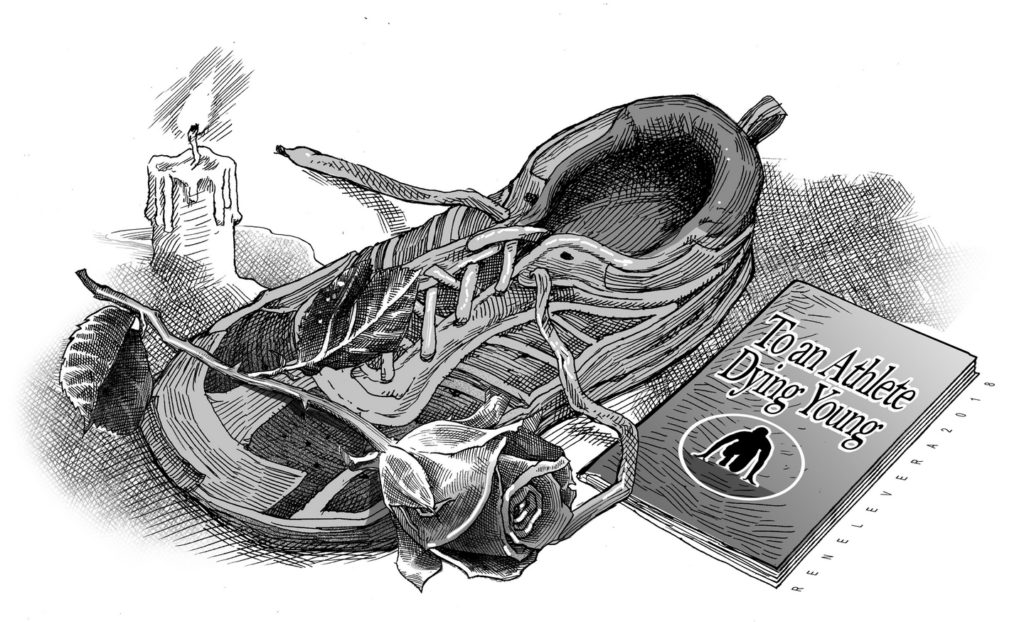
Among the poems in A. E. Housman’s collection, “A Shropshire Lad,” I find myself particularly drawn to “To an Athlete Dying Young.” In that poem, someone addresses a young athlete who has died, recalling how he had given his people honor by winning a race, for which they cheered him on and paraded him through the market place, carrying him on their shoulders. But now that he is dead the town quietly takes him to the threshold of his house.
The speaker calls the deceased smart for leaving a world “where glory does not stay.” That glory he compares to the laurel, the wreath worn by champions, which grows early and “withers quicker than the rose.”
Besides, acclaim does not really mean anything to a dead man, whose eyes “cannot see the record cut,” and to whose ears “silence sounds no worse than cheers.”
Therefore how clever for the athlete to die early, to leave at the height of his acclaim, unlike most who were once famous but now are largely forgotten, having outlived their fame.
I am tempted to contrast his fate to that of another young man named Jesus, who had gained prominence by his words and deeds. In his Gospel, Mark writes that the people of his hometown, Nazareth, were disbelieving of his wisdom and miracles. Instead of approval and praise, they met him with contempt, dismissing him as a mere carpenter, whose mother, Mary, they knew well, and his relatives. And so, as Mark puts it, they “took offense.”
Mark writes that, because of their lack of faith, Jesus did not do any miracles in Nazareth, except to lay his hands on and heal a few sick people.
The man from Nazareth, like the athlete in Housman’s poem, died young, but, unlike the latter, without the commiseration of his own people, who, upon hearing that he died in a very shameful manner, crucifixion, might have sniggered and said to one another, “I told you so.” (But, of course, they had to eat their words when, later, news reached them of Jesus’ rising from the dead.)
I imagine that Housman would react with a sneer to Jesus’ death had he written about the Nazarene (perhaps entitling the poem, “To a Prophet Dying Young”). Because Housman was an atheist and took a gloomy view of life, and absolutely no view of an after-life. For him, the dead athlete has no glory other than the memory of his winning a race, and keeping that memory intact by dying young, when people still remember his win. But we know that, as all earthly victories go, it is a glory so short-lived and shallow as to be meaningless.
To Paul of Tarsus, however, the race is this life, and the award giving in the next. To die is merely to breast the tape, to cross the finish line. Hence, contemplating his death, Paul wrote: “I have fought the good fight, I have finished the race, I have kept the faith. Henceforth there is laid up for me the crown of righteousness, which the Lord, the righteous judge, will award to me on that Day, and not only to me but also to all who have loved his appearing.”
Disclaimer: The comments uploaded on this site do not necessarily represent or reflect the views of management and owner of Cebudailynews. We reserve the right to exclude comments that we deem to be inconsistent with our editorial standards.




